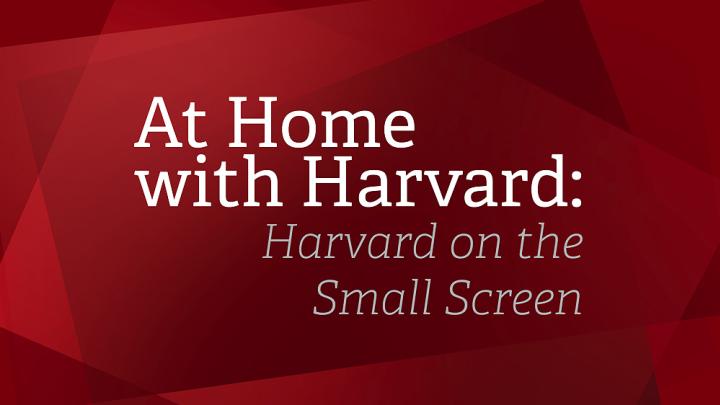This round-up is part of Harvard Magazine’s series “At Home with Harvard,” a guide to what to read, watch, listen to, and do while social distancing. Read the prior pieces, featuring stories about the history of women at Harvard, the climate crisis, the undergraduate experience, and more, here.
Harvardians are surprisingly well represented on not just on television, but in the television industry, covering every genre from documentary to drama to, especially, comedy. We tell the stories of the creators, writers, and actors in your favorite shows regularly in our Montage print section and online—and below, find just a small selection of recent TV stories. Read them as you binge on a new series in quarantine, and if you’re still looking for more, pair this with our segment “At Home with Harvard: Harvard in the Movies.”
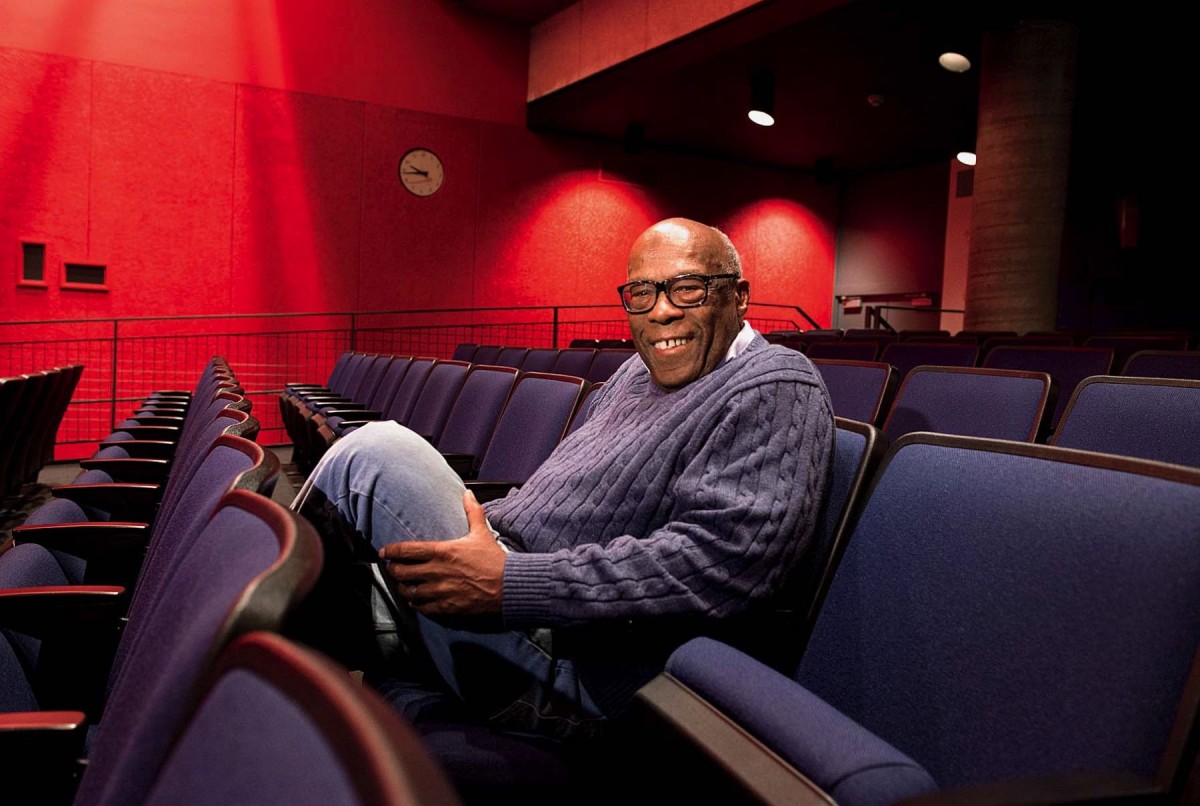
Documentarian Kent Garrett ’63 returned to Harvard last fall for a screening of his work.
Photograph by Jim Harrison
This profile by former Harvard Magazine editor Sophia Nguyen on Kent Garrett ’63, “Reel Revolution,” is full of great anecdotes. Garrett is an author and documentarian whose public-television programs Black Journal, and later Black GI, were platforms for African-American independent filmmakers. They were also early examples of the difference it makes to have black producers in charge of documentaries about black life: “The feel of the pieces changed,” Garrett tells Sophia. “We didn’t have to go through a white filter. There’s kind of a directness.” The story, written in 2017, also gives an early peek at Garrett’s book The Last Negroes at Harvard, published earlier this year, on his black Harvard and Radcliffe classmates, a group that up to then formed the largest contingent of African-American students admitted to the institution. Their undergraduate days predated, and presaged, the campus unrest yet to come.
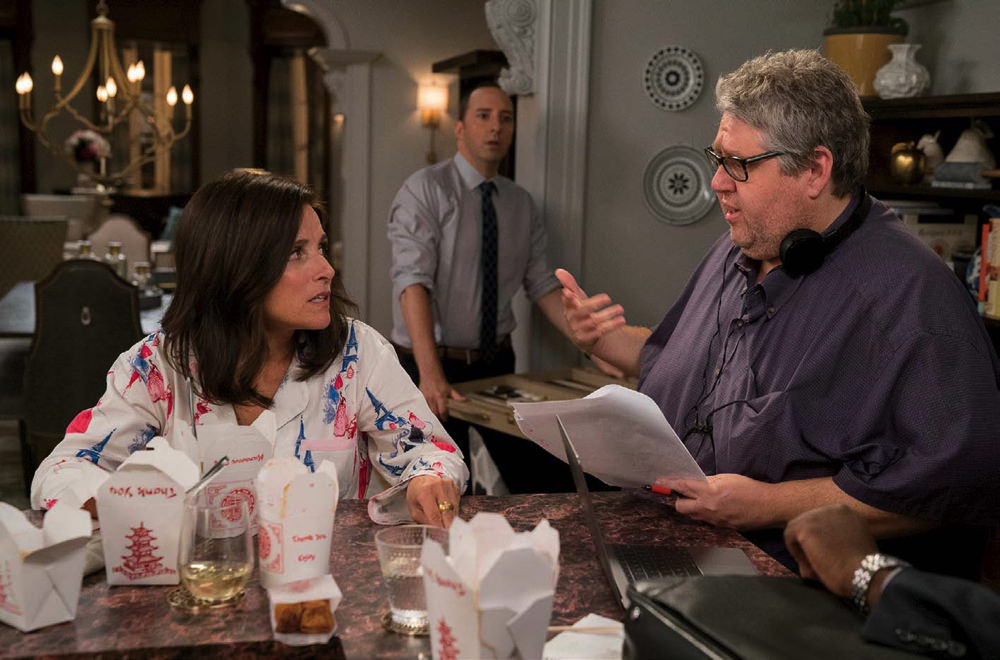
Since 2016, said showrunner David Mandel, shown here with Veep star Julia Louis-Dreyfus, it had become increasingly difficult for the show to outrun reality.
Photograph by Justin M Lubin/HBO
Last spring, as the creators of the bitingly satirical Veep were racing to close out the series before American political reality caught up with the show’s absurdities, Harvard Magazine contributor S.I. Rosenbaum sat down with the showrunner, David Mandel ’92. “Funny Because It’s True” is one of my favorite recent stories. It’s a great piece of writing, and Mandel—a Saturday Night Live alum whose claim to fame is writing the Bizarro World episode of Seinfeld—is frank and funny and relaxed. And I love the connection S.I. makes in the story between Veep and another obsession of Mandel’s: science fiction. “A show like Veep is also technically science fiction,” S.I. writes. “Like The Handmaid’s Tale or The Man in the High Castle, it takes place on some alternate timeline.”
~Lydialyle Gibson, Associate Editor
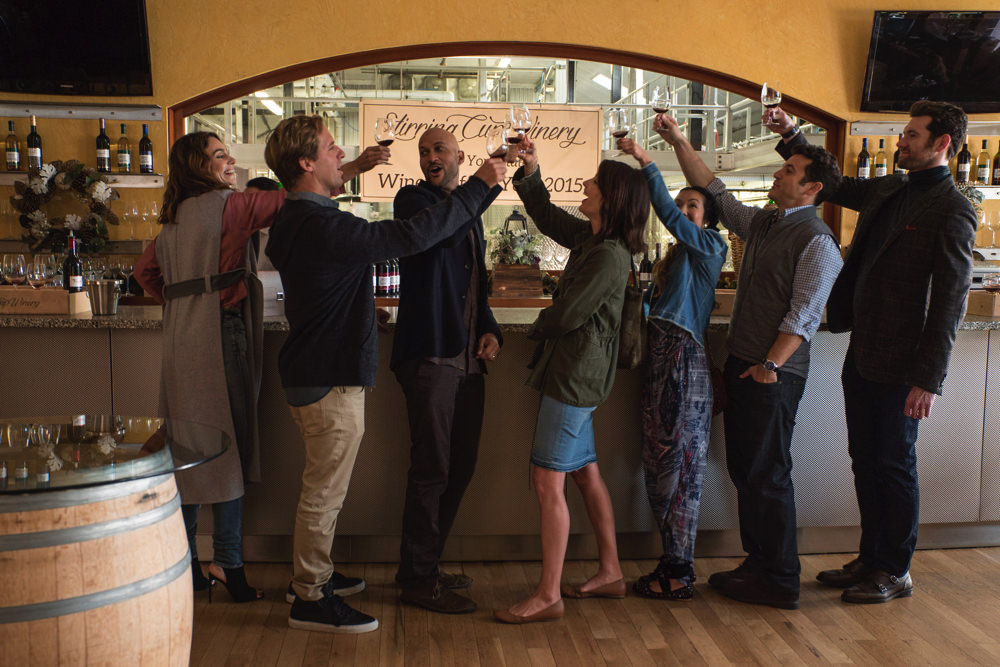
From left: Sam (Annie Parisse), Nick (Nat Faxon), Ethan (Keegan-Michael Key), Lisa (Cobie Smulders), Marianne (Jae Suh Park), Max (Fred Savage), and Felix (Billy Eichner)
Photograph by David Lee/Netflix
“With Friends Like These,” my 2017 review of the Netflix series Friends from College created by Francesca Delbanco ’95 and Nicholas Stoller ’98, is probably the only TV story I’ve ever written. It was so much fun to do—not to spoil the review, but the show was, regrettably, not that good. It’s still hilariously entertaining, and I think it says a lot about the moment we’re living in (or were living in, three years ago). The show’s second season, which came out in 2019, is warmer, rawer, and makes the first season feel worth it.
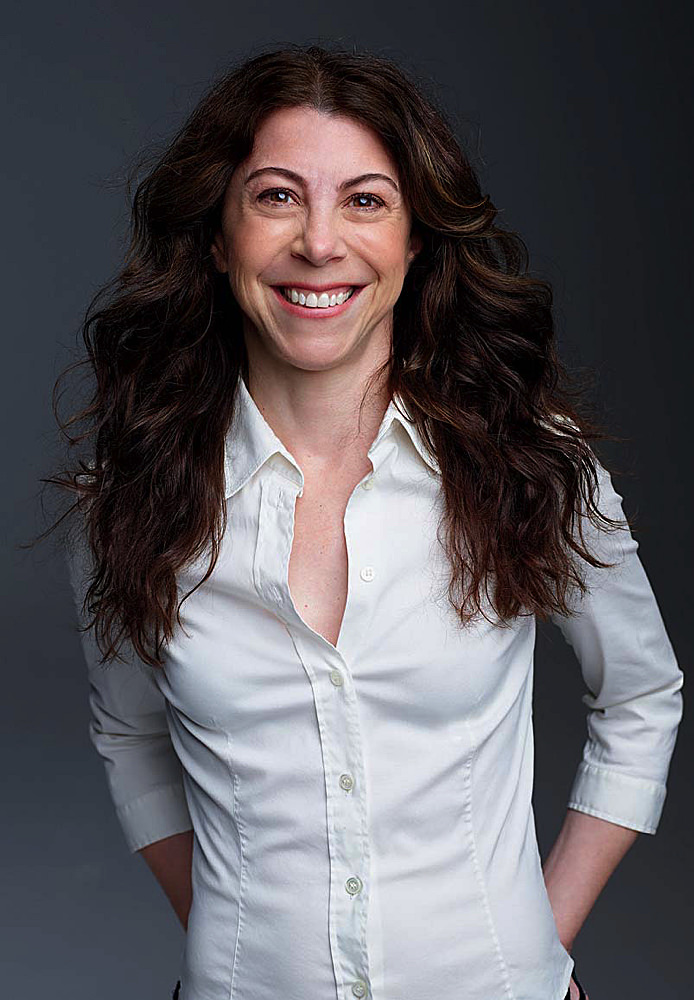
Nell Scovell
Photograph by Robert Trachtenberg
Two profiles of two great Harvard comedians: Colin Jost ’04 of Saturday Night Live, and TV writer and author Nell Scovell ’82. Scovell’s memoir Just the Funny Parts recalls her 30-plus-year career on the staffs of top series like The Simpsons and The David Letterman Show. “If I don’t say something, no one will know I was there,” she says about how she decided to write the book. Both of these stories provide a glimpse inside the comedy industry, from its answer to Donald Trump to its ill-famed, but hopefully abating, hostility toward women.
~Marina Bolotnikova, Associate Editor
The fracturing of American television audiences that began with cable TV, and has perhaps reached a new zenith with streaming content, means that nobody can be familiar with every show on television. A loss of common ground, this lingua franca of grade-school hallway conversations? Perhaps, but it has also vastly expanded and elevated the repertoire in contemporary television, as Sophia Nguyen explains in this story about the series Master of None. An Emmy Award-winning episode inspired by the life experiences of series co-creator Alan Yang ’02 explores relationships between parents and children and the immigrant experience—the quintessential American story. I love “Comic License” because as a piece of writing, it is a gem that conveys much more than it describes.
~Jonathan Shaw, Managing Editor
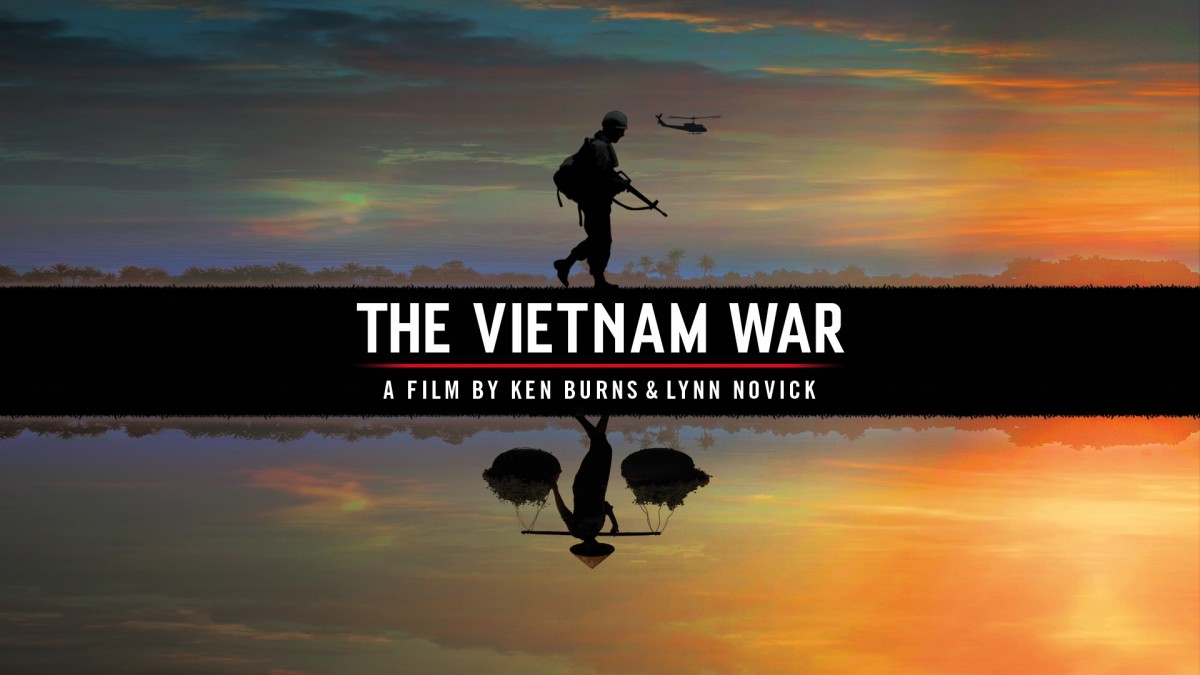
Courtesy of PBS
When I traveled to Vietnam in the winter of 2014 to learn about the country’s development and evolution in the decades after the U.S. defeat in the war there, I came into contact with extraordinary Harvard experts who had built a network of contacts throughout the government and society—keeping doors open, barely, when there was barely any contact between the two formerly enemy countries. As it turns out, those experts, particularly Thomas Vallely and Ben Wilkinson ’98, provided the access, on the ground and to former North Vietnamese combatants, that made the Ken Burns-Lynn Novick series feasible, and heightened its impact immeasurably. As Burns said of Vallely, “He opened our eyes to what we could do.” Jointly, Vallely and Wilkinson made it possible, producer Sarah Botstein said, “to tell a human story about a war.” “Vietnam” on PBS: The Crimson Connection is a story that bridges cultures across an ocean and decades of terrible human suffering and enmity—and is now accessible for a reconsideration, made possible in part by the dedicated, skilled members of an obscure program housed at the Kennedy School.
~John S. Rosenberg, Editor

Harvard Graduate School of Education dean Bridget Terry Long and Sesame Workshop CEO Jeffrey Dunn pose with Ernie, Bert, Grover, Elmo, Count von Count, and Abby Cadabby.
Photograph courtesy of the Harvard Graduate School of Education
I adored watching Sesame Street as a child, with all the colorful characters and imaginative ways they taught us how to count numbers and how to treat people with kindness and respect. I had no idea that Sesame Street stemmed from Harvard—but I’m not surprised. In the late 1960s, Sesame Street co-founders Lloyd Morrisett and Joan Ganz Cooney, Ar.D. ’75, approached Harvard with an idea for an educational television show aimed at preschoolers. A group of about a dozen professors from the Graduate School of Education (HGSE), led by the late Gerald Lesser, a developmental psychologist, spent two years working with the show’s creators and filmmakers to formulate a curriculum based on research into how children learn. My colleague Lydia wrote “Smarter, Stronger, Kinder” last fall, as she witnessed the characters come to Sanders Theatre to celebrate Sesame Street’s fiftieth anniversary.
Sean Presant ’93 was a Ledecky Fellow for Harvard Magazine and is now a Los Angeles-based TV writer, producer, and director. He wrote for The Wayne Brady Show, Happily Divorced, Planet Sheen, and Instant Mom; he also served as the comedy producer for Wipeout. He currently writes and produces for the TV show Almost Paradise on Amazon.
~Kristina DeMichele, Digital Content Strategist
More from “At Home with Harvard”
- Spring Blooms: Your guide to accessing the Arnold Arboretum as the seasons turn in Boston
- Harvard in the Movies: Our favorite stories about Harvardians on screen
- The Literary Life: Our best stories about the practice and study of literature
- Night at the Museum: Our coverage of Harvard’s rich museums and collections
- Nature Walks: Walking, running, and biking in Greater Boston’s green spaces, even while social distancing
- Supporting Local Businesses: Our extensive coverage of local restaurants and retailers, and how you can support them during this time of crisis
- Medical Breakthroughs: Our best stories going deep into the ideas and personalities that will shape the medical care of tomorrow
- Rewriting History: From race and colonization to genetics and paleohistory, our favorite stories about the people reshaping the study of history
- The Climate Crisis: Highlights from our wide-ranging coverage of the environment
- Crimson Sports Illustrated: With 2020 winter sports ending early and the spring collegiate season wiped out almost entirely, we look back at Crimson highlights from past years.
- The Real History of Women at Harvard: Stories covering the admission of women, the Harvard-Radcliffe merger, the rise of women in the faculty ranks, Harvard’s first woman president, and more
- The Undergraduate: Our favorite student essays on the undergraduate experience
- The Secret Lives of Animals: From zoology and evolutionary science to animal-rights law to the joys of local wildlife, a selection of our favorite animal stories
